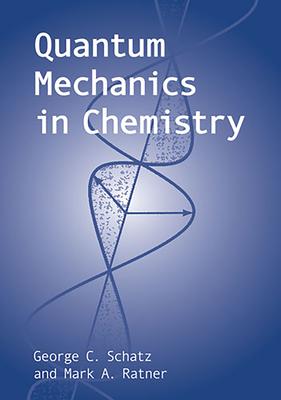Intended for graduate and advanced undergraduate students, this text explores quantum mechanical techniques from the viewpoint of chemistry and materials science. Dynamics, symmetry, and formalism are emphasized. An initial review of basic concepts from introductory quantum mechanics is followed by chapters examining symmetry, rotations, and angular momentum addition. Chapter 4 introduces the basic formalism of time-dependent quantum mechanics, emphasizing time-dependent perturbation theory and Fermi's golden rule. Chapter 5 sees this formalism applied to the interaction of radiation and matter. In Chapter 6, the authors introduce occupation number representations, including applications to both quantized radiation fields and electronic structure; while chapters 7 and 8 focus on scattering theory and basic theories of chemical reaction rates. The remaining three chapters deal with the use of correlation functions and density matrices in quantum mechanics. Problems and a bibliography appear at the end of each chapter; and at the end of the book there is an Appendix C, "Solutions to Problems," new to this edition.

Quantum Mechanics in Chemistry
Intended for graduate and advanced undergraduate students, this text explores quantum mechanical techniques from the viewpoint of chemistry and materials science. Dynamics, symmetry, and formalism are emphasized. An initial review of basic concepts from introductory quantum mechanics is followed by chapters examining symmetry, rotations, and angular momentum addition. Chapter 4 introduces the basic formalism of time-dependent quantum mechanics, emphasizing time-dependent perturbation theory and Fermi's golden rule. Chapter 5 sees this formalism applied to the interaction of radiation and matter. In Chapter 6, the authors introduce occupation number representations, including applications to both quantized radiation fields and electronic structure; while chapters 7 and 8 focus on scattering theory and basic theories of chemical reaction rates. The remaining three chapters deal with the use of correlation functions and density matrices in quantum mechanics. Problems and a bibliography appear at the end of each chapter; and at the end of the book there is an Appendix C, "Solutions to Problems," new to this edition.